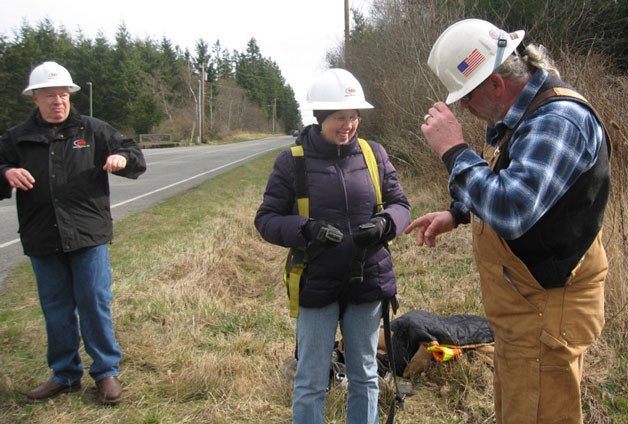One of the oldest organizations on the island, the Whidbey Audubon Society turns 30 this year.
What began as a fledgling group with 35 members ballooned into a formidable organization with 262 members of the local society, and 439 members of the National Audubon Society.
While the group’s primary mission is to protect habitats and track Whidbey birds, it also aims to provide a place where people can simply enjoy the outdoors.
Susan Prescott, the group’s publicity chairwoman, said she participates because it gives her “an appreciation for the natural world.”
“It’s fun learning about all this cool stuff and it’s great to be part of an organization that cares about the quality of the environment.”
In addition to the nine-month “Birds of Whidbey” class offered each year, the group also organizes field trips, cleanups, and campouts to various parts of the island and other areas of Washington state.
However, local bird lovers don’t need to go far so see a variety of birds.
“There’s a significant amount of really good birding on the island,” said Ann Casey, Whidbey Audubon president. She took her first birding class here in 2006.
Whidbey Island lies in the middle of the Pacific Flyway — the route birds migrate north and south along the West Coast. In addition, Whidbey is home to three nationally recognized Important Bird Areas and provides the habitat and wetlands birds need to thrive.
A broad range of birds live and migrate through the island each year.
During this year’s annual Bird-A-Thon — a fundraiser in which teams compete to identify the highest number of birds over a 24-hour period — 120 birds were spotted by the winning team.
Whidbey Audubon also participates in “citizen science” programs created by the national society, where members learn how to properly track and report the behavior of local bird colonies such as the Pigeon Guillemot, one of Whidbey’s signature birds.
“Our chapter has been involved in the conservation of habitat, public outreach, education,community partnerships and most recently citizen science,” said Whidbey Audubon Program Chair Robin Llewellyn. “Our classes, programs and field trips are well attended sometimes to overflowing.”
Casey said she joined the Whidbey Audubon Society because of her love of natural science, but stayed for the people.
“Hooked me into a very dedicated, educated and interesting group of people,” Casey said.
The next Whidbey Audubon field trip is Aug. 30 to Sept. 1, a camping trip at Bassett Park in Washtucna. Membership is not required to attend.
“We enjoy introducing wildlife, particularly birds, to new faces,” Llewellyn added. “This society is a good place for both new and long time birders to come and learn about the many birds that share our Whidbey Island home.”
For more information, visit www.whidbeyaudubon.org



